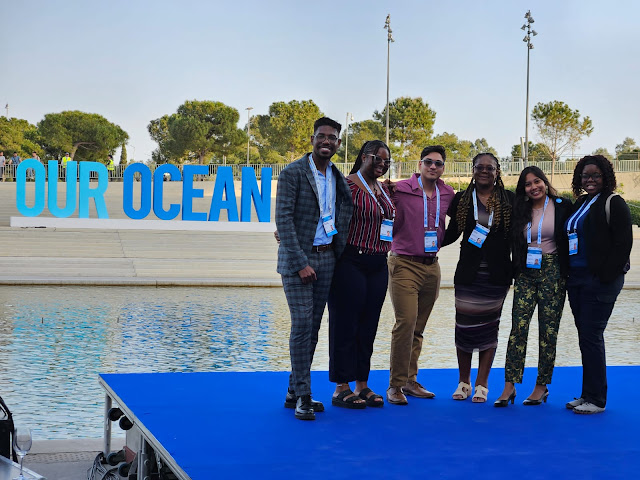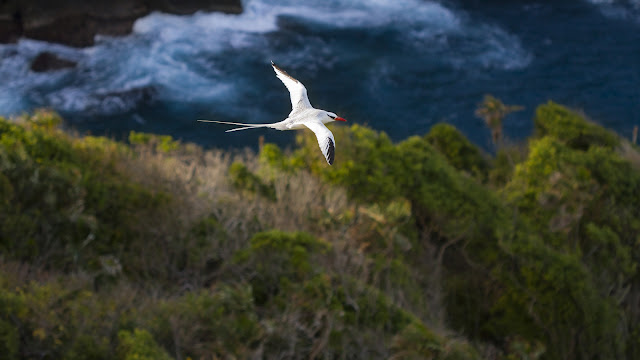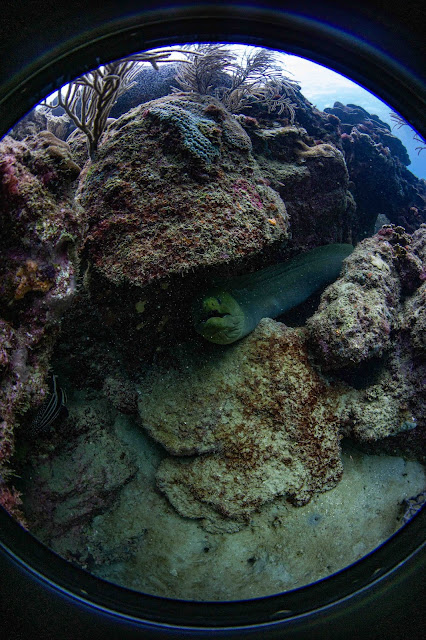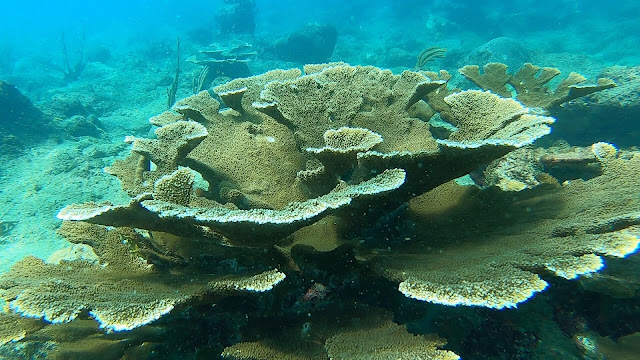YOUTH PROTECTING OCEAN
Hannah Lochan reports from the Youth Leadership Summit and the Our Ocean Conference in Greece.
“We may seem radical today, but it is just because we are ahead of our times.” Dr. Sylvia Earle, oceanographer and deep-sea explorer was addressing 100 youth leaders gathered in Athens, Greece. She was not only motivating but made me feel heard and understood. Climate anxiety is daunting and the threats to our ocean’s health are mounting. However, through it all, we have hope and we have action. Young people cannot be afraid, but must become steadfast champions for the ocean. “Tell the truth! There is no need to go beyond the truth. But do not stay quiet about the things that concern you,” Dr Earle said.
SUSTAINABLE OCEAN
ALLIANCE
Historically, youth representation is low. Now, we recognize that the young
need more input into goals and policies that affect their present and future. A
Youth Leadership Summit was hosted before the main Our Ocean Conference through
a partnership between the organisers and Sustainable Ocean Alliance (SOA). A
global non-profit organisation, SOA is dedicated to developing spaces for youth
engagement and leadership with action through innovative solutions. Youth led
hubs throughout the world make up the SOA community, with many representatives
from these hubs at the event. Members from SOA Caribbean hub included. Kieran
Ganga and me from Trinidad and Tobago, Pearl Bergan from St. Kitts and Nevis,
Robyn Young from Jamaica, Trevon Callender from Barbados and Yan Carlos Labrada
Abreu from Cuba. Our group was led by Caribbean Regional Representative Khadija
Stewart.
It is critical that organisations continue to value the voices of the youth and create unique spaces to allow for conversations and actions that were not had in the past. The summit offered leadership training, skills building, mentorship exercises with global professionals and significant networking opportunities. My team was mentored by Assistant Secretary Jainey Bavishi, Deputy Administrator of the National Oceanographic and Atmospheric Administration. We explored the challenges facing small island developing states and ways to successfully promote community driven management. Ms. Bavishi also discussed the success of NOAA’s Ocean Guardian School Programme, an approach to getting young children excited about their ocean heritage.
The youth leaders were tasked with developing our own pledges for the protection of the environment through plastic pollution reduction. The winning pledge is
“We the people for the ocean want to create a global curriculum for environmental education to build more informed communities addressing climate change and mitigating pollution. We’ll achieve this goal by 2030 connecting with seven regions with 100 leaders from indigenous people to share knowledge and practices that reflect land and ocean stewardship through multimedia resource sharing to reach five million people.”
This youth led pledge was an addition to the other commitments presented by various government and non-government actors at the 9th Our Ocean Conference (OOC9). This conference began under the initiative of the USA in 2014 with the purpose of discussing serious ocean related threats and develop strategies to promote international action for ocean protection. This is the platform where many countries announce their pledges and commitments to ocean conservation. This year, critical themes included green shipping, sustainable tourism in coastal areas, and islands, reduction of marine plastic and green transitioning in the Mediterranean. In this 9th Our Ocean Conference, a total of 460 commitments were made, valued at USD 11.35 billion across key areas of conservation interest. Significant commitments included Greece’s decision to establish two new Marine Protected Areas (MPAs) in the Aegean and Ionian Seas as well as banning bottom trawling in Greece’s MPAs by 2026.
Through the whirlwind of plenary sessions, side events and inspiring discussions, there were three global challenges that stood out for me.
1. MORATORIUM ON DEEP SEA MINING
Deep sea mining refers to the process of removing minerals from the deep sea bed floor. This activity has sparked global debate on this destructive activity, given that the deep sea is the most under explored place on Earth. At OOC 9, leaders from France and Vanuatu strongly encouraged governments of other countries to send representatives to the upcoming meetings at the 29th session at the International Seabed Authority in Jamaica. Currently, 25 countries have taken a stance against deep sea mining ranging from precautionary pause to moratorium to a complete ban. Thus far, only France has called for a complete ban on deep seabed mining. Dominican Republic is the only country in the Caribbean to have taken a stance of a Precautionary Pause. For island states that are so dependent on a healthy ocean, Trinidad and Tobago and other Caribbean leaders must step forward to protect our ocean heritage. SOA Regional Representative for the Caribbean, Ms. Khadija Stewart appealed to governments in her remarks at the closing ceremony, “To be on the right side of history and join the movement for a precautionary pause to protect the deep sea. We cannot continue to operate in a system of extract, exploit, destroy and scramble to repair.”
2. PROTECTING BIODIVERSITY ON THE HIGH SEAS
One may be aware of rules and laws protecting Trinidad and Tobago’s coastlines, but what about the areas of ocean that exist outside of a country’s control. Who owns it? Should it still be protected? The high seas make up nearly two- thirds of the ocean, yet only 1% of this area is actually protected. The High Seas Treaty aims to protect these areas and implementation of this treaty would even allow for Marine Protected Areas to be established in the high seas. Many countries have joined the 30 x 30 call for protection of 30 % of the ocean by 2030.
Currently, 88 countries have signed the treaty. Only four have ratified (completed the legal changes to national legislation) with the latest being Belize. Seven Caribbean islands including Cuba and Dominican Republic have signed the treaty.
At the moment, Trinidad and Tobago has not signed nor ratified this treaty. With 2030, less than six years away we need our leaders to sign and ratify to ensure protection of the high seas.
3. ACCOUNTING FOR PLEDGES TO THE OCEAN
With 460 commitments and pledges towards ocean conservation made at this conference, it is natural to wonder, what do these pledges mean and do they even work? In the closing ceremony, Mr. Perit Karenu, former EU Commissioner of the Republic of Malta stated, “We wanted the Our Ocean Conference to be totally different from other conferences. We moved away from a conference of discussions to a conference of pledges. Now we must move away from conferences of pledges and move towards conferences of results because as we heard the results are there. Pledging needs to be tracked and monitored else it is rendered useless.”
So what are the outcomes of these pledges? According to an independent test of Our Ocean Conference Accountability, 72% of commitments made since 2014 in the Marine Protected Area/ ABM theme have been completed. Additionally, two- thirds (67%) of the MPA/ABM commitments to date have been completed. There is also indication that the remaining commitments show evidence of progress given their intended date of completion.
The value of evidence based tracking and accountability is critical given the limited time and resources we have against climate change.
The experience in Greece was transformational and I left with a powerful feeling of hope, that through collaboration, education and innovation we can protect our ocean and demand support from our policy and decision makers to ensure conservation at the most impactful, legislative level.
 |
| Youth leaders attending the Youth Leadership Summit and the Our
Ocean Conference and SOA and Our Ocean Conference organisers. Photo courtesy Sustainable Ocean Alliance
|



